- Home
- Lilith Saintcrow
Steelflower Page 21
Steelflower Read online
Page 21
Her voice faded as I stared into the light. The taih’adai shone fiercely now, white-hot silver pouring in concentric waves. I felt a dozy sense of panic—I was slipping into a trance, dangerous if there were enemies nearby.
Ease yourself, K’li. Darik’s voice, distant but still audible. I shall stand guard. Do as you must.
Comfort filled me, and the light took me. I could no more stop it than I could stop breathing.
Chapter 31
A True G’mai
Darik stroked my hair, gently, touched my forehead. The fire had died down to a low glow and Redfist was asleep, judging by the audible snores. The minstrel—he had given his name as Gavrin—picked out a low tune on his lute. He had a fair hand with spices, and the coney stew tonight had been far more savory than expected. The boy was curled into a small ball next to Redfist. I did not blame him—the barbarian was warm even if ripe, and the night would be chill.
Atyarik’s arm was around Janaire, who leaned against him, hugging her knees. Every so often he murmured to her and she would wake enough to laugh softly, a counterpoint to the minstrel’s wanderings. Eventually she slid down to sleep curled on the tavar’adai, and Atyarik pulled a blanket over her, gently.
The Sun had gone down behind the bluffs to the west, dying the sky with veils of deep furnace red and purple. I had lost the better part of a candlemark in the silver light from the taih’adai.
After a long while, Darik spoke. “Better?”
The nausea had quieted. I leaned against him, my head on his shoulder. The shaking in my limbs faded. Janaire had taken the small silvery sphere back and passed her hand over it, murmuring as the light died. Tomorrow I had another. Another episode of screaming silver light and Power compressing itself, arrowing into my mind.
I have Power. I am G’mai. “I never knew,” I whispered. “They never told me.”
“With a silence like yours, Kaia, I can understand.” The lilting sound of G’mai was infinitely soothing. Darik’s voice was low and private. “How old were you when your mother died?”
“Five summers high. Just before my Test, she caught the fever and died. When I was Tested and…the silence came. Nobody spoke to me.” I sighed. The taih’adai. It had…what had it done? I felt quiet, and very calm. Calmer than I could ever remember.
I have Power. I am G’mai.
Darik’s arm tightened over my shoulders, a comforting touch. “You must have loved her very much.”
“She was…” I closed my eyes. The memory of my mother was pain and pleasure in equal parts, her braids falling over me as she kissed me goodnight, her s’tarei—my father—a quiet presence behind her. He had been always willing to play with me, often carrying me on his chest in a child’s sling or teaching me hand-tricks and rhymes as my mother worked in her study. She was the Heir of the House Anjalismir, and often busy. I remembered his voice, and how he would let me tug on his hair and play with his knife-hilts.
She had always smelled of warmth and fresh perfume, my mother. “She was very kind.” It could not encompass what I felt when I remembered her, but I sensed he understood.
“Hm.” A soft, companionable sound. I had surfaced from the silver light to find him behind me, his hands on my shoulders, bracing me as the nausea struck. When I had turned to him, tears trickling down my face, he had touched his lips to my forehead, gently.
I was not certain what to think. We had finished dinner in silence, both of us.
The minstrel tossed fresh wood on the fire, edging a bit closer to us. “Tis a lovely night.” Tentative, as if he expected me to dispute such a thing. “My thanks for allowing me to travel with you, Lady Kaia.”
“Tis merely Kaia. And you are Gavrin.” I was shocked enough to feel some kindness for him.
“I earned my name.” He lifted his chin, pride showing through the raggedness of his garments. “I was a bondslave in Pesh until the man who owned me died. His will was a manumit, but I could not stay in Pesh without falling into slavery again. I had the lute from my father, so I began to sing. Tis a good life. Hard, but good.”
“Your hands.” They were so disproportionate, caricatures like a Rijiin puppet pageant. “How old are you?”
His fingers stroked the lute strings. They responded with a low chord. “Oh, fifteen summers, I think, though tis hard to tell. The life of a bondslave’s a hard one.” He smiled as he said this, a smile mixed of pain and gratitude combined. “I was glad to leave it.”
“Tell me what a bondslave’s life is.” For I had never wondered before, simply been glad I was not of their ilk.
His fingers wandered on the strings. A slow rill of melody sounded, inexpressibly sad. “I did make a song of it.” His dark eyes half-closed staring into the fire. “But nobody wishes to hear. They wish to hear of the Iron Flower, and other heroes.”
Heroes? I have never met a hero, young one. If they exist, they are well hidden. “I wish to hear.” And I did. “If tis awful, I will tell you.”
His fingers kept up their wandering. It was a beautiful melody. “You truly wish to hear of it?”
“Oh, certainly. Tis bound to be better than the tale of the King of Thieves.” I wanted to hear more of his lute playing, to stave off the coming of sleep. Darik would take the first watch, but if I slumbered, I would dream of silver light and my mother’s voice. She had been a teacher, my mother, and a singer. The silence that had descended on the world with her death was still only a breath away.
No, Darik whispered into my mind.
Twas as if I was standing in a vast cavernous empty space now. The taih’adai had erected a wall between me and the screams of other minds, and I felt naked without that constant chaos washing against me. As if I had been swimming in a sea all my life, now plucked out and shivering on a rock, hearing the waves outside but no longer buffeted by them. The silence will not return as long as you hear me—and if it does, I will still be here. S’tarei and adai, bound together. Does the silence return, I will not leave you, K’li.
The minstrel cast me an almost despairing glance, his eyes those of a child seeking approval. “Do you really wish to hear it?”
I yawned. Darik trailed his fingers over my cheek, and I sighed, leaning against him. I would never have thought I could find comfort in his nearness. “Yes, I wish to hear it. Either play it or go to sleep.”
The Pesh nodded. His hair was the color of dark honey. Now that he had his growth, he was lanky and just a little ugly, but he must have been an attractive boy. Perhaps once he achieved his adulthood he would be easy on the eyes, if he did not use his minstrelsy to seduce the wrong woman and gain a slash on either cheek from enraged relatives.
The Pesh liked boys. I had spent some time there, as a guard for a merchant’s house, finally leaving with a caravan bound for Tak-Himor. It was a strange city, citizens cloaked in yards of blackcloth secrecy, but the holy men and women naked in the streets, singing their devotional songs to their god. Shaal was his name, a god of stone and caged fire—open flame was not allowed inside the Pesh borders. It was disrespectful to the god.
“I will give it to you, then.” Gavrin struck a low discordant chord on the lute.
He began to play. It was a sad, limping tune, and when he began to sing I understood why.
Pesh is a broken tongue full of clicks and hisses. I had not gained much of it in my time there, but I had a rough idea of his speech and listened intently. He had some talent, this raw-boned minstrel, when he was not inflicting kettlecrock hero-tales on his listeners.
Gavrin sang of the cold of early morns in Pesh, rising to start the caged fires, scrubbing floors, backbreaking work for children and adults alike. He sang of families broken at the auction block, sold into slavery to pay for debt, of the lash of a whip and the cruelty of auctioneers. He sang a slave’s lament and a longing for freedom, and of the extinguishing of hope by hard work and the lash. He sang of bruised hands and knees, of the iron at the throat of a slave, collar and cuffs. He sang low and long against the
grief and the agony, and I was surprised to find fresh tears on my cheeks as he finished with a low moan that could have been a heart breaking and life fleeing a weary body.
There was utter silence afterward, and his fingers plucked a silvery trill from the strings. The firelight painted his face a shadow showing what he could become, given enough time. The hush continued until he coughed nervously. “Tis a bit rough,” he said, defensively. “Needs more time, and work on the descant.”
“Tis wonderful.” I wiped the tears away. “That is what you should be singing, minstrel.”
He laughed, a small bitter sound. “None would pay coin for that, Lady Kaia.”
I moved a little, restlessly. Darik was still next to me. “I would. It reminds me of the mountains, back home. Harsh, and beautiful. Do you have more?”
“A few.” He stole a glance at me from the corner of his dark eyes. I could see this in the uncertain light from the fire. “Laments, mostly. Things I play while traveling, for my own pleasure. I know a few Gemerh songs, too, from the Tsaoganhi. Spent a whole year traveling with them, learning everything they would teach me.”
I nodded, felt Darik shift his weight slightly, leaning in toward me. I have never traveled with the Tsaoganhi, they think G’mai are bad luck, and women not of their own kind especially unlucky. Their women are fierce with knives and words, but shy and retiring when the men speak. They travel in waggons, brightly painted and strung with glittering things to keep away the malende, the bad spirits. It was a pity—they felt the same way about magic as I did.
Or the same way I had.
I have Power. I am a true G’mai.
I still did not believe it. Twas as if something precious and fragile was placed in my hand, and if I breathed upon it, it would melt. “Play, then. At least one more song before sleep. Tomorrow is another long day of travel.”
“If you ask it, lady, I will play.” He had a fine courtly air spoiled only a little by the wide disbelieving grin on his face. “I shall give you my favorite of the Gemerh songs, then. I learned it traveling with the Tsaoganhi and they did not know what it meant, just that twas a traveling song.”
He struck the first chord and began to play, and I smiled. Twas a child’s song, a teaching rhyme about the night sky, and I hummed along. It was a naming of the stars the Elders came from on the Silver Ships, the Everstar and the Red Star, the constellation of the dotanii and the Bracelet, Beleriaa’s Door and the Plough.
I fell asleep in the middle of the song, sliding down, my head pillowed on my arms, and Darik laid a cloak and a blanket over me. Music followed me into darkness.
I am G'mai.
I fell asleep believing it, for the first time.
Chapter 32
Mystery
The gray cantered up the rise. This was the last high sandstone hill before the bowl of the coastal plains, the Road wheeling eastward toward Shaituh. Darik’s bay matched my horse stride for stride, and we reached the top of the hill. I pulled the gray to a halt and surveyed the plain below.
Darik had fashioned a bridle of sorts—no bit, just a loose twisted contraption giving the appearance of reins. The bay pranced and snorted, throwing his head up, and Darik calmed him with a murmur.
“Mother Moon.” I whistled, a long low sound.
Darik said nothing, merely looked.
The Plain below was empty, rolling sweeps of chedgrass the Road cut a channel through, a pair of ruts ground by countless waggon wheels and horse hooves. I looked to the west, over the broad sweep of grass-spotted sand that replaced the marshes.
Marooned on the sand were two caravans. I saw the waggons, but no oxen—and no cooking fires. And the shape of the waggons was wrong. They were only charred skeletons.
My vision is excellent, the G’mai are gifted with good eyes. I saw nothing living among the wreckage of the caravan. The mystery of dust and smoke was at least partially solved. We had not seen or passed the caravan since, for there was no caravan to be seen.
“What will you do?” As though he did not already know.
“I shall satisfy my curiosity.” I touched a knifehilt as the gray stamped, catching my nervousness. I swung down from the saddle, stiffness from long daily riding biting at my back and thighs. “Tis my greatest flaw.”
“Mh.” He did not rise to the bait. “I will accompany you, Kaia.”
I considered this, looping the gray's reins over my arm. “There is no danger.” Nothing moves there, Darik. And if someone is hiding in burned-out waggons, they may mean ill, and I do not wish to risk harm to any member of this merry troupe.
“True,” he agreed easily enough. “Still, I shall accompany you.”
My sigh was a gust of wind. “Very well. Have Redfist keep them out of sight, and follow me. Agreed?”
“Wait for my return.” For one moment he was every fingerwidth the prince, an unconscious air of command hanging on him. It did make him handsome. “Please.”
I blew out a short, impatient breath, handing the reins up to him. “You are more trouble than you are worth. Hurry.”
“I do not think the waggons are likely to escape.” The bay turned, prancing, and cantered back to the small group waiting below. The gray followed, without a look back, its lead attached to Darik’s hand. It would be easier to take the horses, but I did not wish to risk the four-footed cousins. Something did not feel right here—and if aught happened, I wished to be certain the others could return easily to Vulfentown. Besides, I could not see if the sand was firm enough, closer to the caravans.
I stood on the hilltop, clearly silhouetted for any crossbow bolt, and felt Darik’s worry. He felt he should be with me, not playing messenger. But he obeyed.
When he returned, loping for the top of the hill, he stopped next to me, the wind fingering his hair. He touched my shoulder, and the contact was pleasant. Comforting.
“The barbarian says to be careful,” he said in G’mai. “The little one says he wishes to come, and Janaire argues with Atyarik about following you, and the minstrel is generally keeping his head out of the bickering. In other words, all goes as it has these past few days.”
It won a smile from me. “I am glad tis unchanged. Come with me then, princeling. Shall we solve this mystery?”
“An honor to guard your back, adai’mi. If we uncover anyone living, shall I kill or simply disarm them?” His black eyes were level and serious.
I still did not like the thought of him among charred waggon skeletons, but I started down the hill. “Do as you think best, D’ri. You have seen a battlefield before.”
He walked beside me, or slightly behind, moving silently. I took care with my steps, though we were clearly visible. His silence—the silence of a s’tarei—spread out to enfold both of us.
Of course, he did not know what waited amidst those shattered, smoking waggons. Nor did I. Bandits were unlikely, they would not stay after stripping the waggons and taking survivors for sport or slaving. Scavengers were likely, human and animal. Yet scavengers would have been moving about, unaware of our presence, focused on their food.
Twas likely the scene was deserted.
Yet if there is anything I have learned in more than a decade of sellswording, tis that no situation is entirely predictable.
Why are the waggons still burning? Vaguely disturbed, I eyed the caravan again. No, more than vaguely disturbed.
Very disturbed. Bad trouble on the road to Shaituh, Ammerdahl Rikyat asking for me, the Shainakh Emperor crazy enough to start jabbing at Pesh in addition to the Danhai, and my nape crawling with the feel of danger.
I do not like this, Darik said privately. It feels wrong.
I agreed. It rubbed every instinct against the grain. Yet passing this close to a mystery without investigating it was beyond my strength. The more I knew of this, the better prepared I was to keep us all safe on the road to Shaituh. Also, the knowledge might be worth something. I needed all the coin I could gather to feed myself and the others through the winter.
> I can bring us coin, if necessary, Darik offered. I have certain skills considered valuable.
I stopped, examining the line where the grasslands merged with sand. Confused tracks here, something long and dragging. Scorching, padded feet.
I whistled again, a nervous note added to the sound of waves and wind against sand. “Ya’hana.” The word rode a long wondering breath. “Tracks.”
Darik was examining them. “I have never seen these before.”
“I have.” I fell back into speaking G’mai, as I often did with him. The only change was my intonation, as equal and intimate as his ever had been. “Wyvern. Three of them, maybe more.”
He cursed, quietly and passionlessly. We have all three varieties of wyrm in our country—the long fiery wyverns, the dragon, and the dragon's smaller more-dangerous cousin, the wingwyrm. Some s'tarei even go wingwyrm-hunting, when their population needs thinning.
There are no songs for wyrm-hunting except laments.
Darik spoke the same question immediately occurring to me. “Why so close to the sea?”
“I do not know.” I shivered, examining the tracks. Now I could see a clear line of charring the lie of the grass had hidden, striking up and away from the hill. “They are solitary creatures, unless tis a mother with little ones. But the tracks are too big. And they will not come close to bodies of water, tis poison to them. They are mountain creatures.” I chewed my lower lip gently, checking the Sun in the sky. “Mother’s tits. We shall find a waystation tonight. I like not the thought of facing a wyvern in darkness.”
He nodded. But he examined the waggons. “What of the oxen?”
“Wyverns would eat them.” I studied at the closest waggon, at once seeing what he meant. The traces were perfectly intact, not broken as if a wyvern had torn them or an ox sought to bellow free and escape. I looked at a few more waggons and saw they were all the same.
I smelled conspiracy, or witchery. Or some combination of the two.
My eyes met Darik’s. “So the caravan stops here, sees three wyverns, and looses their oxen to meekly hand them over? Or bandits strip a caravan and wyverns come down from the hills to burn it for no apparent reason? Or…” I shrugged helplessly, spreading my hands.

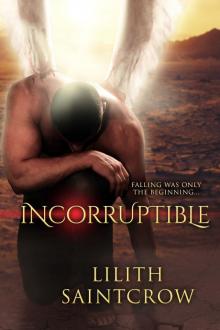 Incorruptible
Incorruptible Finder (The Watchers Book 6)
Finder (The Watchers Book 6)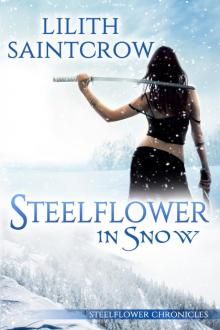 Steelflower in Snow
Steelflower in Snow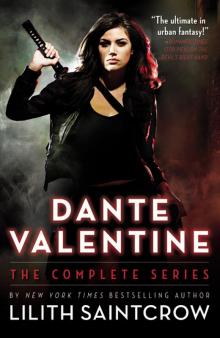 Dante Valentine
Dante Valentine Redemption Alley-Jill Kismet 3
Redemption Alley-Jill Kismet 3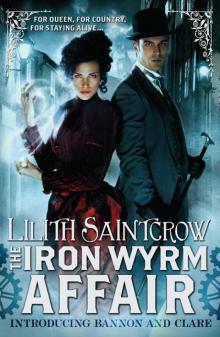 The Iron Wyrm Affair
The Iron Wyrm Affair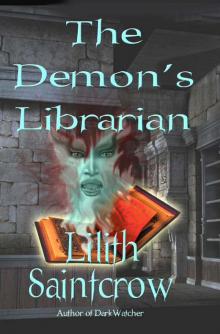 The Demon's Librarian
The Demon's Librarian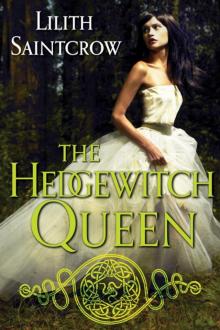 The Hedgewitch Queen
The Hedgewitch Queen Redemption Alley
Redemption Alley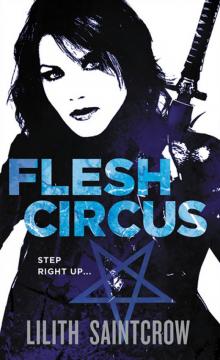 Flesh Circus
Flesh Circus Saint City Sinners
Saint City Sinners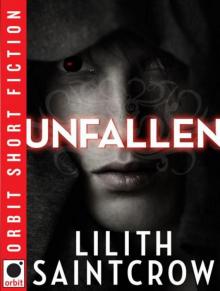 Unfallen
Unfallen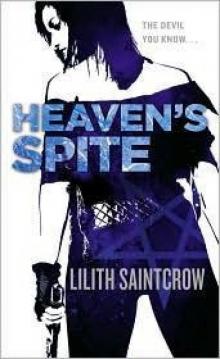 Heaven’s Spite
Heaven’s Spite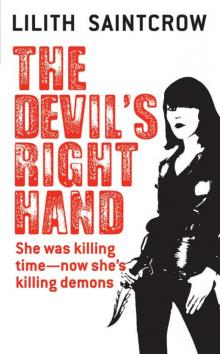 The Devil s Right Hand
The Devil s Right Hand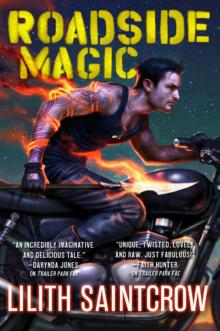 Roadside Magic
Roadside Magic Steelflower at Sea
Steelflower at Sea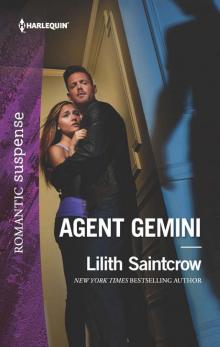 Agent Gemini
Agent Gemini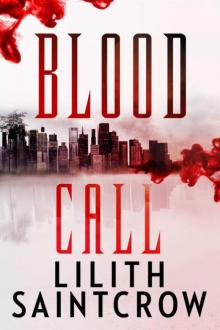 Blood Call
Blood Call Agent Zero
Agent Zero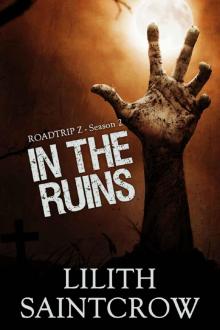 In The Ruins
In The Ruins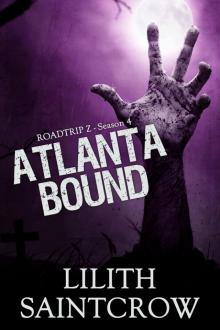 Atlanta Bound
Atlanta Bound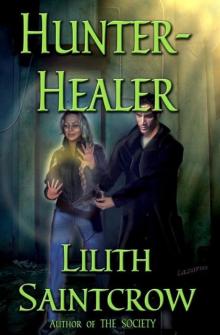 Hunter, Healer
Hunter, Healer Hunter's Prayer
Hunter's Prayer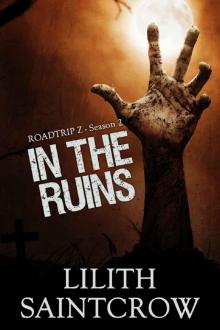 Roadtrip Z_Season 2_In The Ruins
Roadtrip Z_Season 2_In The Ruins Wasteland King
Wasteland King Pack
Pack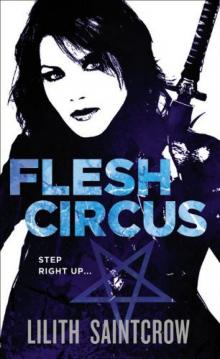 Flesh Circus - 4
Flesh Circus - 4 Trailer Park Fae
Trailer Park Fae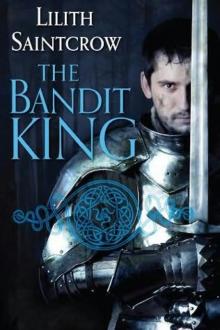 The Bandit King h-2
The Bandit King h-2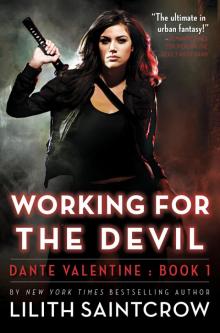 Working for the Devil
Working for the Devil Pocalypse Road
Pocalypse Road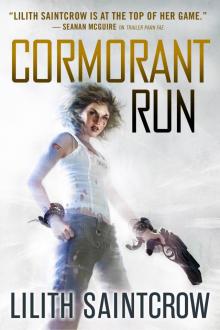 Cormorant Run
Cormorant Run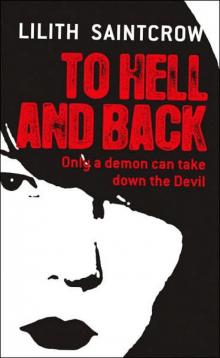 Dante Valentine Book 5 - To Hell and Back
Dante Valentine Book 5 - To Hell and Back Desires, Known
Desires, Known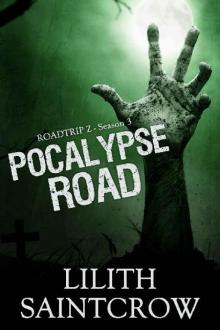 Roadtrip Z (Season 3): Pocalypse Road
Roadtrip Z (Season 3): Pocalypse Road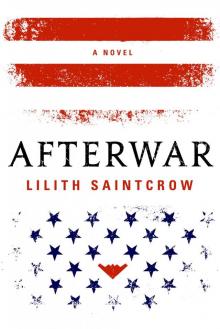 Afterwar
Afterwar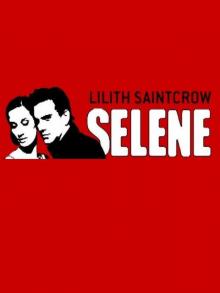 Selene
Selene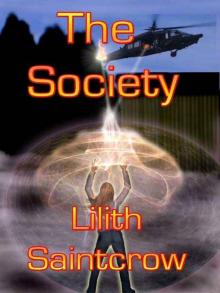 The Society
The Society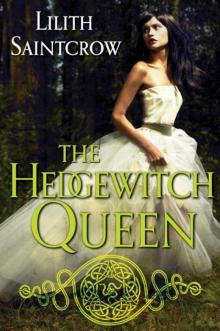 The Hedgewitch Queen h-1
The Hedgewitch Queen h-1 Night Shift jk-1
Night Shift jk-1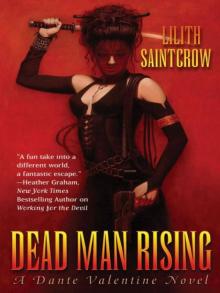 Dead Man Rising
Dead Man Rising Dead Man Rising dv-2
Dead Man Rising dv-2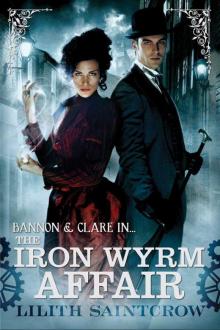 The Iron Wyrm Affair: Bannon and Clare: Book 1
The Iron Wyrm Affair: Bannon and Clare: Book 1 Saint City Sinners dv-4
Saint City Sinners dv-4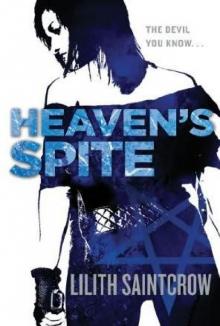 Heaven's Spite jk-5
Heaven's Spite jk-5 Beast of Wonder
Beast of Wonder Hunter's Prayer jk-2
Hunter's Prayer jk-2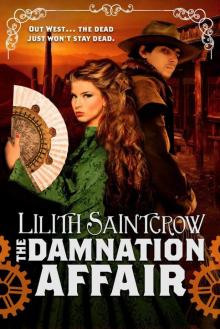 The Damnation Affair
The Damnation Affair Steelflower
Steelflower The Red Plague Affair: Bannon & Clare: Book Two
The Red Plague Affair: Bannon & Clare: Book Two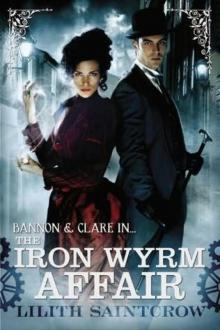 The Iron Wyrm Affair tb&ca-1
The Iron Wyrm Affair tb&ca-1 Flesh Circus jk-4
Flesh Circus jk-4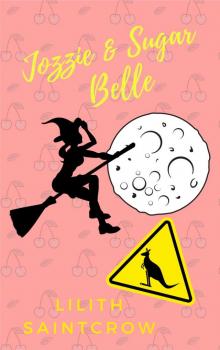 Jozzie & Sugar Belle
Jozzie & Sugar Belle Night Shift
Night Shift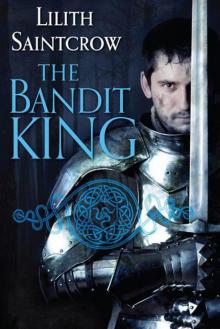 The Bandit King
The Bandit King![Hunter, Healer [Sequel to The Society] Read online](http://i1.bookreadfree.com/i1/04/05/hunter_healer_[sequel_to_the_society]_preview.jpg) Hunter, Healer [Sequel to The Society]
Hunter, Healer [Sequel to The Society] The Devil's Right Hand dv-3
The Devil's Right Hand dv-3 To Hell and Back dv-5
To Hell and Back dv-5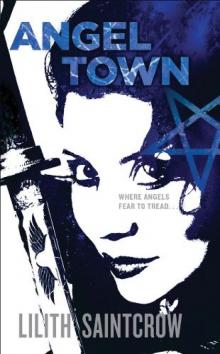 Angel Town
Angel Town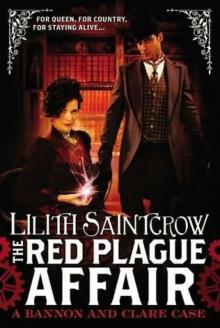 The Red Plague Affair tb&ca-2
The Red Plague Affair tb&ca-2 Redemption Alley jk-3
Redemption Alley jk-3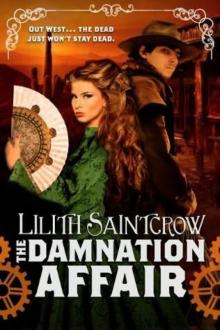 The Damnation Affair (the bannon & clare affairs)
The Damnation Affair (the bannon & clare affairs) Working for the Devil dv-1
Working for the Devil dv-1